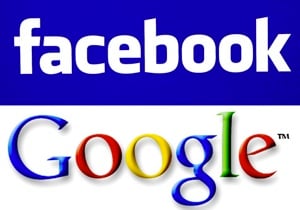Find Our Latest Video Reviews on YouTube!
If you want to stay on top of all of our video reviews of the latest tech, be sure to check out and subscribe to the Gear Live YouTube channel, hosted by Andru Edwards! It’s free!
Thursday May 12, 2011 3:31 pm
Facebook desperately hired PR firm to run a Google smear campaign
 The battle between Facebook and Google intensified this week when The Daily Beast and USA Today revealed that Facebook hired a PR firm to go after the search giant.
The battle between Facebook and Google intensified this week when The Daily Beast and USA Today revealed that Facebook hired a PR firm to go after the search giant.
Last Friday, USA Today reported that PR firm Burson-Marsteller had contacted a variety of news outlets pushing a story about how Google's "Social Circle" Gmail feature violates users' privacy. The pitch was made on behalf of an unnamed client that The Daily Beast later confirmed was Facebook.
When pressed, Facebook confirmed the hire to the Daily Beast, citing concerns it had with the way Google was using its data. It was also reportedly annoyed that Google was boosting its own social-networking services with information from Facebook.
"In other words, just as Google built Google News by taking content created by hundreds of newspapers and repackaging it, so now Google aims to build a social-networking business by using that rich user data that Facebook has gathered," Dan Lyons wrote for The Daily Beast.
Facebook and Google declined comment Thursday.
In a statement, Burson-Marsteller confirmed that it accepted the Facebook assignment, but said it probably should have declined.
"The client requested that its name be withheld on the grounds that it was merely asking to bring publicly available information to light and such information could then be independently and easily replicated by any media. Any information brought to media attention raised fair questions, was in the public domain, and was in any event for the media to verify through independent sources," the firm said.
"Whatever the rationale, this was not at all standard operating procedure and is against our policies, and the assignment on those terms should have been declined. When talking to the media, we need to adhere to strict standards of transparency about clients, and this incident underscores the absolute importance of that principle," it concluded.
When Larry Page took the reins as Google's CEO last month, he sent a memo to employees that said a quarter of their 2011 bonuses would be tied to Google's performance in the social realm. Google has repeatedly denied that it will launch a formal social network, but executives said it will incorporate social features into existing products.
In March, for example, Google introduced "+1," which lets users recommend certain Web sites with the click of a button, much like you might "like" something on Facebook. That came about a month after Google enhanced its social search algorithm to more frequently include results from social connections. The practice, however, actually dates back to October 2009, when Google began indexing links and social connections as part of its Labs program. In January 2010, Google made Social Search available to all of its users.
One foray into social that Google likely wants to forget is Buzz, which Google introduced in February 2010. It added a "news feed" feature to Gmail and was also incorporated into Google's mobile offering on Android phones and the iPhone. Amidst concerns over what information was displayed publicly, however, Google soon tweaked Buzz to give user more control over their settings.
That prompted a class-action lawsuit that Google later settled for $8.5 million. Google also reached a deal with the Federal Trade Commission whereby Google will develop a comprehensive privacy program and submit to regular audits of its privacy policies.
Google and Facebook, meanwhile, have already engaged in a public battle over how their data is used. In November, Google made a subtle change to the Terms of Service in its Google Contacts API that said Web sites could not automate the import of a user's Google contacts into their own database unless they reciprocated the exchange. This affected Facebook the most, as Facebook doesn't allow other platform users to import their Facebook contacts automatically as Google does. Facebook later posted a workaround; Google said it was "disappointed" with the move.
This article, written by Chloe Albanesius, originally appeared on PCMag.com and is republished on Gear Live with the permission of Ziff Davis, Inc.
Latest Gear Live Videos
Advertisement
Advertisement
Advertisement
© Gear Live Inc. {year} – User-posted content, unless source is quoted, is licensed under a Creative Commons Public Domain License. Gear Live graphics, logos, designs, page headers, button icons, videos, articles, blogs, forums, scripts and other service names are the trademarks of Gear Live Inc.











